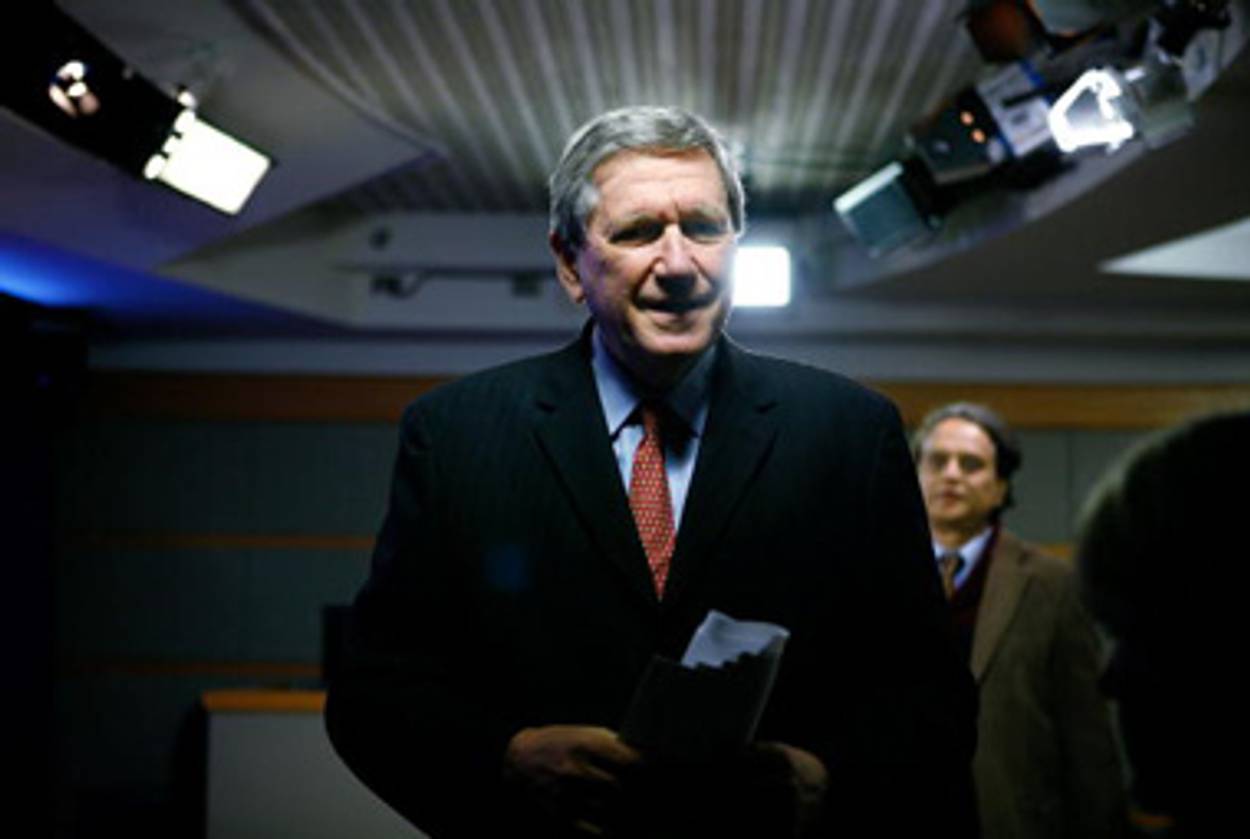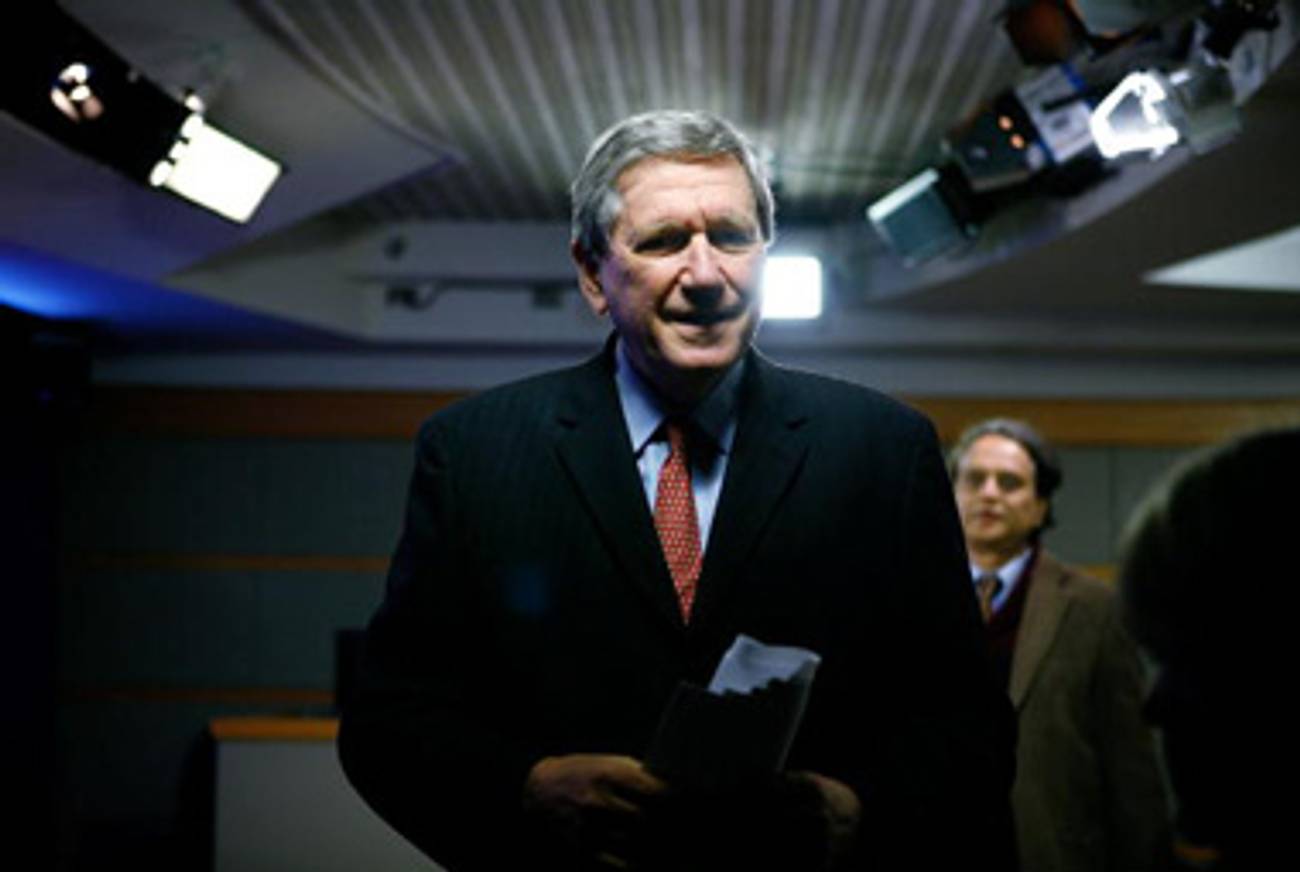Holbrooke, a Top U.S. Diplomat, Dies at 69
A one-of-a-kind character, yet consummately of his times




Ambassador Richard Holbrooke, the lifelong U.S. diplomat who was something of a Zelig to American foreign policy over the past half-century, died yesterday following a torn aorta, for which he was hospitalized and operated upon at the end of last week. He was stricken while meeting with his boss, Hillary Clinton—he had spent the past two years as the Obama administration’s special representative for Afghanistan and Pakistan, an extremely difficult and somewhat thankless job (there is a possibly apocryphal report that his last words were, “You’ve got to stop this war in Afghanistan”). Had President Obama appointed anyone other than Clinton as secretary of state, it would likely have been Holbrooke. He was born to a German Jewish mother and Russian Jewish father and raised atheist/Quaker in Scarsdale, New York. His wife, the Hungarian-born journalist Kati Marton, is the daughter of Hungarian Jewish Holocaust survivors.
In addition to his beyond-formidable diplomatic C.V., Holbrooke was a talented investment banker and journalist, at one point the editor of Foreign Policy. In May 2008, he wrote a wise essay on the 50th 60th anniversary of Israel’s founding. He argued that President Truman bravely combated the “unspoken but real anti-Semitism” of his foreign policy advisers and recognized the nascent Jewish state, 11 minutes after its declaration, making his country the first to do so. Holbrooke concluded:
Israel was going to come into existence whether or not Washington recognized it. But without American support from the very beginning, Israel’s survival would have been at even greater risk. Even if European Jewry had not just emerged from the horrors of World War II, it would have been an unthinkable act of abandonment by the United States. Truman’s decision, although opposed by almost the entire foreign policy establishment, was the right one—and despite complicated consequences that continue to this day, it is a decision all Americans should recognize and admire.
Though his signature achievement was brokering the 1995 Dayton accords that effectively ended hostilities between Bosnia and Serbia, Holbrooke was involved in the Paris peace talks concerning the Vietnam War in 1968 (he authored a volume of the so-called Pentagon Papers); the diplomacy that opened U.S.-Chinese relations in the 1970s; NATO expansion in the 1990s, when he was President Clinton’s ambassador to Germany; and much besides. Nominally a Democrat, he ultimately worked for administrations of both parties. In some ways, he was the very definition of an éminence grise; in others, he seemed intent on defying it. Having entered the Foreign Service weeks after graduating from Brown, his first diplomatic posting was to Vietnam’s Mekong Delta in the early ’60s. He had a knack for being in the right place at the right time, except it wasn’t a knack, it was willpower and smarts.
The sense of Holbrooke as a vigorous, tough-nosed, tough-minded, tough, and glamorous diplomat was perhaps best articulated yesterday by John Kerry: “I cannot imagine Richard Holbrooke in anything but a state of perpetual motion,” the Massachusetts senator said. “He was always working. He was always a man on a mission, the toughest mission, and that mission was waging peace through tough as nails, never-quit diplomacy.”
The thing to read, I am neither the first nor last to tell you, is George Packer’s superb New Yorker profile of Holbrooke from last year. “The notion that Holbrooke craves attention, which he bitterly resents and constantly feeds, is accurate but misleading,” Packer reported. “Far from undermining those he works for, Holbrooke is a loyal servant to power, with an old-fashioned respect for the presidency. Once he took the new job, the restlessness and anxiety about his place in the order of things subsided, his energy found its proper outlet, and he bore down, in Strobe Talbott’s words, like ‘a precision-guided munition.’” The portrait is of a proto-Boomer who plays realpolitik games to achieve almost mischievously idealistic ends. (I still remember the op-ed he wrote following Ukraine’s democratic Orange Revolution, in which, characteristically, he found a way to stretch outside the parameters of the essay itself. It began: “KYIV, Ukraine — The world still knows this city as Kiev, its name in Russian, but let this dateline and this column call the capital of Ukraine by its rightful name.”)
I can’t begin to offer the first-hand accounts of the man that will come pouring forth in the coming days. I saw him on two occasions. Once was at a conference on “Af-Pak,” as the diplomatic portfolio that was soon to be his is called, at NYU in the heady month following President Obama’s re-election. (That Holbrooke would be secretary of state was an open joke for several speakers.) He was large, with stony features, and patrician in manner, and seemed at home with his fellow panelists and conference-goers, who were academics and journalists rather than statesmen and politicians. They clearly accepted him as one of their own, valuing his expertise and straight-talk—he rarely spoke in diplomatese, even while serving as a diplomat (earning the ire of Afghan President Hamid Karzai, who did not take kindly to Holbrooke’s correct allegations of election-rigging). His intelligence and sheer knowledge were completely taken for granted.
The other time, a little over a year ago, we were on the same Amtrak car, headed from New York to Washington on a Saturday afternoon. I deliberately sat a few rows behind him on the nearly empty train so that I could see what he was reading. Well, it was a Saturday afternoon and he was coming from New York. What do you think he was reading? I recall him spending the most amount of time on Sunday Arts & Leisure.
Strong American Voice in Diplomacy and Crisis [NYT]
Holbrooke [Ben Smith]
The Last Mission [The New Yorker]
Related: Washington’s Battle Over Israel’s Birth [WP]
Marc Tracy is a staff writer at The New Republic, and was previously a staff writer at Tablet. He tweets @marcatracy.